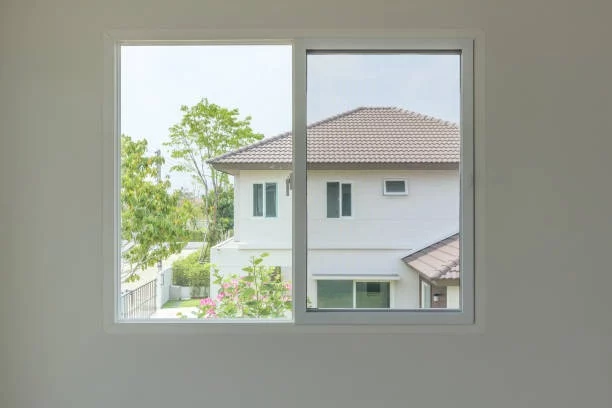In commercial and industrial environments, the materials used for walls, ceilings, and finishes must do more than look good. They need to perform. Businesses in sectors ranging from food processing to manufacturing, agriculture, and healthcare are constantly looking for wall systems that combine durability, hygiene, and cost-efficiency. Among the most popular and effective solutions today are PVC wall panels, which have gained significant traction for their performance in tough settings.
Let’s take a closer look at why these plastic wall panels are becoming the material of choice across a variety of commercial and industrial spaces.
Built to Withstand Harsh Conditions
One of the most compelling benefits of plastic wall panels is their ability to withstand harsh conditions. In environments where moisture, temperature fluctuations, chemicals, and physical impacts are common, conventional wall materials such as drywall or painted surfaces often deteriorate quickly.
Plastic wall panels, particularly those made of PVC (polyvinyl chloride), are engineered for resilience. They resist mold, mildew, rust, and corrosion, making them a long-lasting alternative to traditional wall finishes. This is especially important in spaces like food production areas or agricultural facilities, where humidity levels are high and cleanliness is non-negotiable.
In industrial plants or garages, these panels are not easily damaged by tools, carts, or machinery. Their impact resistance means fewer repairs and replacements over time, helping businesses avoid costly downtime.
Easy to Clean and Maintain
Maintenance is a recurring challenge in any commercial or industrial environment. Surfaces that are hard to clean can harbor bacteria, dirt, and residue that not only look unsightly but also create safety or compliance risks.
Plastic wall panels are designed with hygiene in mind. Their smooth, non-porous surface doesn’t trap dirt, and most cleaning agents can be used without fear of damaging the panel. This makes them ideal for food-grade facilities, laboratories, hospitals, and clean rooms where sanitation is essential.
Unlike tile walls, which have grout lines that can trap grime and require regular deep cleaning, PVC wall panels offer a seamless finish that simplifies sanitation protocols. A quick wipe-down with common disinfectants is usually enough to keep them spotless.
Fast Installation Saves Time and Money
Time is money, particularly in industries where shutting down a space for renovations or repairs can disrupt productivity. Traditional wall systems can take days to install and often involve mess, dust, and complex finishing work.
Plastic wall panels, on the other hand, are lightweight and easy to handle. Many systems feature interlocking tongue-and-groove designs or hidden fasteners, allowing for quick and clean installation.
This not only reduces labor costs but also means that spaces can return to service faster. For businesses operating on tight timelines or looking to minimize disruption, this is a major advantage.
Cost-Effective Durability
While the initial investment in plastic wall panels may be comparable to or slightly higher than some traditional materials, their long-term cost-effectiveness is difficult to ignore. Their durability reduces the frequency of repairs, repainting, or full wall replacements.
Additionally, because they are resistant to common forms of damage (moisture, mold, impact, etc.), maintenance costs remain low over time. Businesses can redirect resources that might otherwise go toward building upkeep into other critical areas.
In facilities where operational budgets are under constant scrutiny, these savings become particularly valuable. They also align well with sustainability goals by reducing the need for resource-intensive renovations or material waste.
Versatility Across Sectors and Applications
Plastic wall panels aren’t limited to one type of setting. Their benefits translate well across a wide array of commercial and industrial uses, including:
- Food Processing Plants: Hygiene, washability, and chemical resistance make them ideal for USDA or CFIA-compliant spaces.
- Car Washes: High humidity and constant exposure to water require moisture-resistant, mold-proof panels.
- Farming and Agriculture: Easy-to-clean walls are a must for livestock containment areas, milking parlors, and processing rooms.
- Cold Storage and Refrigeration: PVC panels resist moisture and withstand extreme temperatures without warping.
- Commercial Kitchens: Compliance with health codes is easier with sanitary wall surfaces that hold up to steam, grease, and heat.
- Healthcare Settings: Sterile environments such as clinics and labs benefit from seamless, bacteria-resistant walls.
- Warehouses and Garages: Withstanding bumps, scrapes, and spills is critical in high-traffic, utilitarian spaces.
The adaptability of these panels means that facility managers, architects, and construction professionals can specify a single product line for multiple types of spaces, streamlining procurement and planning.
Aesthetic Options and Design Flexibility
Historically, durability often meant compromising on aesthetics. That’s no longer the case. Modern plastic wall panels are available in a range of finishes, colors, and textures that allow them to blend into professional environments or stand out as bold design elements.
Panels can mimic the appearance of tile, stone, or smooth enamel. They can be coordinated with ceilings, trim, and corner guards for a cohesive look. In office spaces, showrooms, or customer-facing areas, this aesthetic flexibility allows function to meet form.
Some PVC wall panel systems are even compatible with digital printing or branding, offering an opportunity to incorporate company logos or visual identifiers directly into the wall surface.
Moisture Resistance: A Game Changer
Water is a persistent threat in many commercial spaces, and materials that absorb or degrade when exposed to moisture are a liability. PVC wall panels are impervious to water. They will not swell, rot, or delaminate when exposed to wet conditions.
This makes them especially effective in areas like:
- Dishwashing rooms
- Locker rooms
- Shower stalls
- Beverage bottling plants
- Animal care facilities
The peace of mind this offers for property managers and operations teams is significant. It also helps buildings stay in better condition longer, with fewer unexpected repairs.
Supporting Compliance and Safety Standards
Whether it’s OSHA, FDA, CFIA, or local building codes, compliance is non-negotiable in many industries. Choosing building materials that help meet those standards can simplify inspections and reduce the likelihood of citations.
Plastic wall panels are manufactured to meet many regulatory standards. Their fire resistance, hygiene ratings, and chemical tolerance make them a trusted option for environments that are routinely audited or inspected.
Their smooth surfaces and clean lines also reduce the number of potential contaminants or hazards, contributing to better air quality and workplace safety overall.
Final Word: Why the Shift Toward Plastic Wall Panels Makes Sense
In today’s commercial and industrial landscape, facilities must balance performance, cost, and regulatory compliance while maintaining clean and safe environments. PVC wall panels offer a rare combination of durability, hygiene, moisture resistance, and ease of maintenance, making them an increasingly common choice.
From food-grade environments to high-traffic warehouses, their versatility, longevity, and performance under pressure make them stand out as a smart investment for facility owners and builders alike.
As more industries adopt them, it’s clear: plastic wall panels aren’t just a practical solution—they’re fast becoming the new standard.

Lexy Summer is a talented writer with a deep passion for the art of language and storytelling. With a background in editing and content creation, Lexy has honed her skills in crafting clear, engaging, and grammatically flawless writing.



